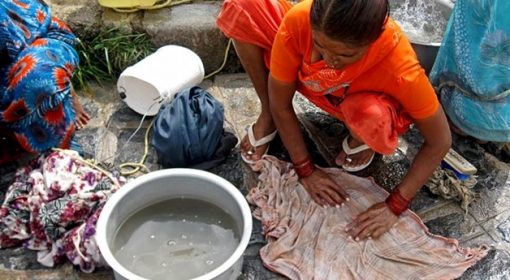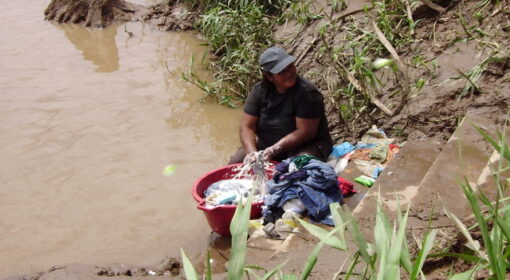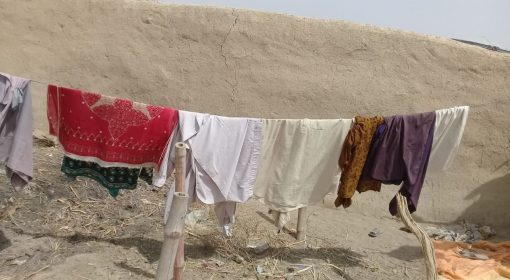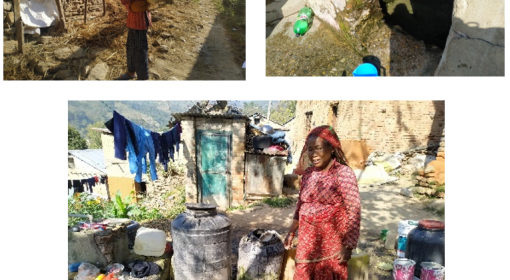by Meghna Mukherjee, Getanew Tesfaw and Assefa Kumssa
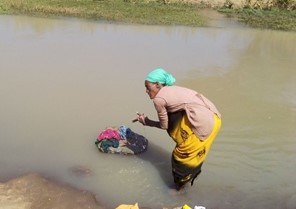
Zeyneba lives in Koloba Hawas village in the Amhara region of Ethiopia. There is no water reservoir in her town, so she collects all her family’s clothes and goes to the Ourso river once every three or four days. This is a three-hour journey on foot. She is the only person responsible for washing clothes in her family. She explains, “No one has helped me wash clothes in my life .”She further adds, “When I had given birth, my clothes were dirty. So, one day I asked my sister and mother to come to help me in doing laundry. My husband never does laundry”. She reveals clothes are washed in rivers and ponds during the rainy season or in canals used for irrigation purposes. When she goes to the market, she purchases bar and powder (Omo) soaps; otherwise, laundry is done using water only. Sometimes she uses volcanic ash (white soil) to wash heavy clothes like blankets. She cannot always buy powder soap (Omo) as they are expensive. This makes laundry even more complex and tiring.
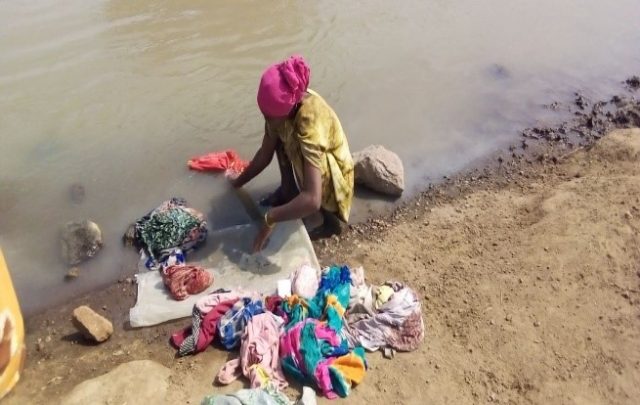
Zeyneba narrates how two years ago, she met with an accident while she was on her way back from doing laundry. She says, “I was looking for a friend to go together to do the laundry, but there was no one to be found, so I started the long walk alone, carrying the clothes on my back. After reaching the river, I washed all my clothes. While coming back, I was exhausted, so I slipped and fell from a rock. I was badly injured while being four months pregnant. I suffered from high blood pressure and was in severe pain for a long time. I am afraid to get pregnant again”.
The story of Zeyneba should not be considered an exception but as the norm. Many women like her face myriad challenges while performing the most basic laundry activities. A survey was conducted in the Oromia Regional State, central rift valley of Ethiopia, to understand the challenges. It covered three woredas, namely Jeju, Arsi Sire, and Merti, with two kebeles (villages) in each woreda comprising a total of six villages. Through informal discussions with women, it was found that they are responsible for household tasks such as raising children, cooking, cleaning, and washing clothes. They also share responsibilities equally with men in farming activities. Rural laundry has traditionally been highly gendered, with the burden falling mainly on women and young girls. Women, particularly in urban areas, are doing laundry work for their households and others as a source of income.
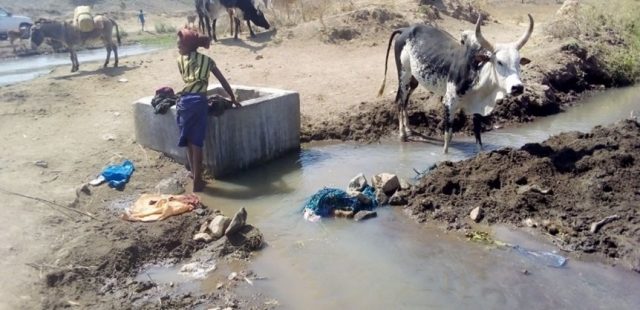
It is unfortunate that even today, laundry is done by manual labor using traditional materials that consume extra energy, water, and time. In most cases, women must travel long distances every day to fetch water to do their laundry at home or wash their clothes in rivers and springs. More often than not, the laundry work takes up the whole day for the woman. In the end, she is left feeling exhausted.
One of the women named Shuga shares her laundry routine: Like all other women from her community, she collects clothes from her family and launders them every third or fourth day. She uses soap only for special occasions. Otherwise, only water is used for washing clothes. She adds that washing clothes take up most of her day. For her, laundry involves soaking clothes into river channels; washing on stones; drying the clothes on rocks and trees, or laying them on the ground.
Practical ideas for easing laundry:
Simple tools like a washing board, plunger, and a brush make doing laundry easier. While such types of equipment can come in very handy, their use and adoption are not widespread. So, when the idea of using and promoting better laundry tools was discussed with women, they welcomed the possibility of having such tools at their disposal. Many women expressed preference for using corrugated washing boards and centrifugal hand-washer if given an opportunity. They saw the potential of using them frequently to reduce the drudgery involved and keep the clothes cleaner. The women were also interested in getting practical demonstrations and training on building and using it in their daily routine. They were confident that their effort, time, detergent, and water used would reduce significantly by using the tools.
For more details on the tools, please check out this blogpost: https://thewaterchannel.tv/thewaterblog/making-life-lighter-on-improving-laundry/
